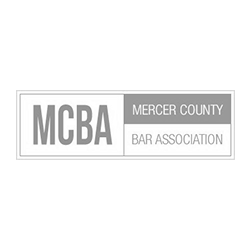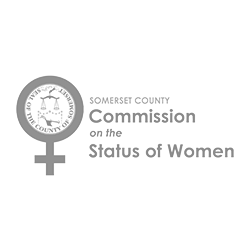Equal Pay Act Claims and Wage & Overtime Claims
Are you a woman doing the same job as your male counterpart, but getting paid less to do it? If so, you may have a claim under the New Jersey Law Against Discrimination and/or the Federal Equal Pay Act (collectively referred to here as Equal Pay Act claims).
To prove an Equal Pay Act claim, you must establish that “unequal pay was given for the performance of work that is substantially equal to that performed by male employees.” Grigoletti v. Ortho Pharmaceutical Corporation, 118 N.J. 89, 110 (1990). You need only establish that you are paid differentially with respect to a single male employee. So, even if there are other male employees who make the same or less than you, you may still have a valid claim as long as one male employee who is doing substantially equal work is paid more than you. It also does not matter if there are female employees who are paid as much as the highest paid males. “The fact that one member of a protected group is not a victim of discrimination does not preclude others in the group from prevailing on a discrimination claim.” Grigololetti, supra at 109.
“For purposes of establishing a prima facie case, it is the jobs, and not the individuals who held the jobs, that the Court must compare.” Dubowsky, supra at 990, citing Mulhall v. Advance Sec., Inc., 19 F.3d 586, 592 (11th Cir. 1994), cert. denied, 513 U.S. 919, 115 S.Ct. 298, 130 L.Ed.2d 212 (1994). “The main determining factor in the ‘substantial equality’ of the jobs is whether the jobs involve ‘a common core of tasks’.” Ibid. Factors to be considered include similar quality and quantity of production, education, relevant prior work experience, conduct and skill. Ibid., citing 29 C.F.R. §1620.13. “To prevail in an EPA action, the jobs must be ‘substantially equal’ in terms of skill, effort, responsibility and working conditions.” Id at 473.
“When a plaintiff establishes that she has performed substantially equal work for unequal pay, a strong inference of discrimination is created” under the EPA. Grigoletti v. Ortho Pharmaceutical Corp., 118 N.J. 89, 109 (1990). The burden then shifts to the employer to prove, by a preponderance of the evidence, that the wage disparity is the result of one of four factors: (1) a seniority system; (2) a merit system; (3) a system that measures earnings by quantity or quality of production; or (4) a differential based on any factor other than sex.
Certain employees are exempt from the requirement to pay overtime wages for hours worked in excess of 40 hours per week, but most employees are entitled to time and a half for all overtime hours worked. We can help you determine if your position is exempt or non-exempt under the wage and hour laws. Whether under the Federal Fair Labor Standards Act (FLSA) or the NJ State Wage and Hour Law, we are equipped to analyze your potential wage claim. The attorneys also handle claims under the NJ Prevailing Wage Act for employees who are engaged in public works projects.
-


-
Sharon Dragan - Special Occasion Events on Preserved farmsAttorney Dragan presented at the Municipal Clerks' Association of New Jersey Conference in Atlantic City in April on the topic of Special Occasion Events on Preserved farms from a municipal perspective. She presented along with two representatives from the NJ State Agriculture Development Committee, and analyzed how the new law on Special Occasion Events affects municipal administration and application of the NJ Municipal Land Use Law and Right to Farm Act. -
Hammett- Estate Planning Article Series
Tips for College Students & Parents: Be Prepared
As families begin to plan for their child’s transition into college, there are many practical logistics to consider. One such item that should be on the top of the list is to ensure they are prepared to be on their own from a legal perspective. At Mason, Griffin & Pierson, we offer a program to counsel college students and their parents in such matters. To find out more about preparing documents for your student, Click Here.
“Do I really need a Will?“ The answer for almost all adults in New Jersey, from those just starting out to those well into retirement years, is yes, you should have a Will.
At Mason, Griffin & Pierson, we can assist clients develop a comprehensive estate plan to express their wishes that incorporates, as appropriate, estate and gift tax planning strategies and prepare the documents. Documents include Last Wills and Testaments, Powers of Attorney, and Advance Directives for Health Care.
To find out more about estate planning, Click Here. To schedule a no obligation consultation, Click Here. -
New Reporting Requirements Corporate Transparency Act On January 1, 2024, reporting requirements under the Corporate Transparency Act ("Act"), went into effect. All businesses subject to the Act will have to report specific information on the company and certain individuals that own and/or control the company. Mason, Griffin & Pierson is happy to guide you through this reporting process and answer any questions that you may have. Please do not hesitate to reach out if you would like our assistance.
On January 1, 2024, reporting requirements under the Corporate Transparency Act ("Act"), went into effect. All businesses subject to the Act will have to report specific information on the company and certain individuals that own and/or control the company. Mason, Griffin & Pierson is happy to guide you through this reporting process and answer any questions that you may have. Please do not hesitate to reach out if you would like our assistance.
-
Sharon A. Dragan receives the Michael A. Pane Ethics In Government Award Congratulations to Sharon A. Dragan for receiving the Michael A. Pane Ethics In Government Award. The award was presented by the NJILGA at the New Jersey State League of Municipalities November convention. The Michael A. Pane Ethics In Government Award honors a municipal professional who exemplifies the highest standards of ethics and whose work has significantly enhanced the integrity of local government. November 2023
The Michael Pane Award, established by the Pane Family and the New Jersey State League of Municipalities, is given in honor of Michael A. Pane, Sr., who was the long-time editor of the Municipal Law Review, president and trustee of the New Jersey Institute of Municipal Attorneys, counsel to the New Jersey Association of Municipal Clerks, counsel to the League of Municipalities and author of the New Jersey Practice Series, Local Government Law volumes.
Congratulations to Sharon A. Dragan for receiving the Michael A. Pane Ethics In Government Award. The award was presented by the NJILGA at the New Jersey State League of Municipalities November convention. The Michael A. Pane Ethics In Government Award honors a municipal professional who exemplifies the highest standards of ethics and whose work has significantly enhanced the integrity of local government. November 2023
The Michael Pane Award, established by the Pane Family and the New Jersey State League of Municipalities, is given in honor of Michael A. Pane, Sr., who was the long-time editor of the Municipal Law Review, president and trustee of the New Jersey Institute of Municipal Attorneys, counsel to the New Jersey Association of Municipal Clerks, counsel to the League of Municipalities and author of the New Jersey Practice Series, Local Government Law volumes.
-
Liz Zuckerman appointed to the District VII Ethics Committee: The Supreme Court of New Jersey appointed Elizabeth Zuckerman to serve on the District Ethics Committee for District VII (DEC VII) for a three-year term. The district includes Mercer County. August 23, 2023
The Supreme Court of New Jersey appointed Elizabeth Zuckerman to serve on the District Ethics Committee for District VII (DEC VII) for a three-year term. The district includes Mercer County. August 23, 2023
-
Paul M. Bishop named Director We are pleased to announce the election of Paul M. Bishop to the Board of Directors, Mason, Griffin & Pierson, PC. Paul, one of the firm’s senior litigators, practices business, commercial, and general litigation, and represents clients in complex disputes throughout New Jersey’s state and federal courts. July 2023
We are pleased to announce the election of Paul M. Bishop to the Board of Directors, Mason, Griffin & Pierson, PC. Paul, one of the firm’s senior litigators, practices business, commercial, and general litigation, and represents clients in complex disputes throughout New Jersey’s state and federal courts. July 2023
- June 2022
- October 2021
- May 2021
- March 2021
- February 2021
- January 2021
- December 2020
- March 2020
- February 2020
- January 2020
- December 2019
- October 2019
- July 2019
- June 2019
- May 2019
- March 2019
- January 2019
- December 2018
- November 2018
- October 2018
- September 2018
- June 2018
- May 2018
- April 2018
- March 2018
- February 2018
- January 2018
- December 2017
- November 2017
- October 2017
- September 2017
- August 2017
- June 2017
- May 2017
- April 2017
- February 2017
- December 2016
- November 2016
- October 2016
- September 2016
- July 2016
- June 2016
- May 2016
- April 2016
- March 2016
- February 2016
- January 2016
- December 2015
- November 2015
- October 2015
- September 2015
- July 2015
- June 2015
- May 2015
- April 2015
- March 2015
- February 2015
- January 2015
- December 2014
- November 2014
- October 2014
- September 2014
- August 2014
- July 2014
- June 2014
- May 2014
- April 2014
- March 2014
- February 2014
- January 2014
- December 2013
- November 2013
- October 2013
- September 2013
- August 2013








